Do you know about some amazing Hydrogen Peroxide Uses in the Garden? Well, they will surprise you for sure! Read on to find out how!
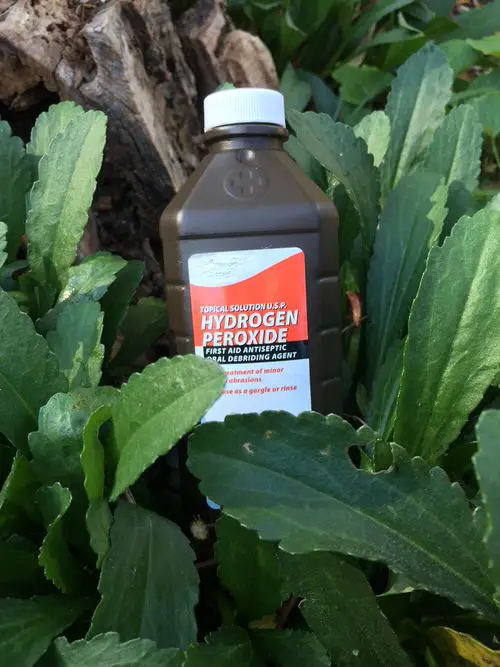
Hydrogen peroxide (H2O2) has an extra oxygen atom than water (H2O), which breaks down, and the molecule of water releases from this separately. It is this extra oxygen atom that makes it so valuable for horticulture. Let’s have a look at some helpful Hydrogen Peroxide Uses in the Garden!
Have a look at some awesome baking soda uses in the garden here
Hydrogen Peroxide Uses in the Garden
1. Promotes Faster Seed Germination
Hydrogen peroxide softens the coat of seeds and kills any pathogen present on it, which increases the germination rate and help the seeds germinate faster.
Soak seeds in 3% hydrogen peroxide solution for 30 minutes. Rinse several times with water before planting.
Learn all about how Hydrogen peroxide helps in seed germination here
2. Prevents Root Rot
If you overwater the plant regularly, the water fills the air pockets in the soil, and the plant’s roots suffocate due to the lack of air, and they begin to die.
To save such a plant affected by this problem, water it thoroughly with 3 ml of 3% hydrogen peroxide mixed in 1 quart of water. The extra oxygen in the hydrogen peroxide provides the roots with much-needed oxygen to survive. After this, don’t water the plant until the soil dries out well.
3. Can Be Used as a Fertilizer
Hydrogen peroxide has one extra oxygen molecule (than water) that helps plant roots to absorb nutritions from the soil more effectively. Mix 1 teaspoon of 3% Hydrogen peroxide with 1 gallon of water to see the effect.
Note: Make sure to not use more concentrated hydrogen peroxide as it can kill plants. 3% strength is the most familiar concentration and is usually recommended.
Have a look at the best homemade fertilizers here
4. Prevents Mold and Mildew
Hydrogen peroxide has an oxidizing property that is fatal for mold and mildew. Mix a liter of water with 10 tablespoons of 3 to 6% hydrogen peroxide, depending on the level of infection. Spray this solution on plants or other surfaces daily until the problem disappears.
5. Keeps Pests Away
Spraying the plant thoroughly with 3% hydrogen peroxide mixed in an equal amount of water kills the pests and their eggs. Hydrogen peroxide also kills the bacteria that develop in fruits and vegetables.
Check out the best natural ways to get rid of pests here
6. Keeps Hydroponic Plants Healthy
In lack of sufficient oxygen, hydroponic plants can be affected by root rot, stunted growth, and bacterial infection. You can protect the health of hydroponic plants and promote their growth by adding 1-2 tablespoons of hydrogen peroxide to one-liter water.
Have a look at some of the best homemade hydroponic systems here
7. Cleans Garden Pots
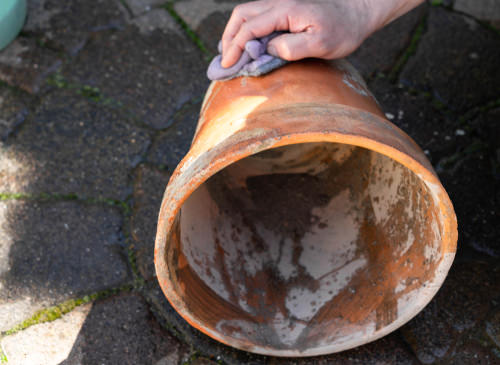
Mix 3-4 teaspoons of Hydrogen peroxide in a liter of water and use this solution to clean clay, terracotta, and metal garden pots. It can easily remove dirt, germs, and stubborn water marks.
8. Sanitizes Garden Tools
Hydrogen peroxide also acts as a great disinfectant due to its anti-fungal and anti-bacterial properties. You can use it to clean and sanitize your garden tools because it can kill harmful germs and bacteria.
Mix 1-2 teaspoons of Hydrogen peroxide in 300 ml of water to make the solution.
Learn all about cleaning Garden Tools here
9. Repels Insects
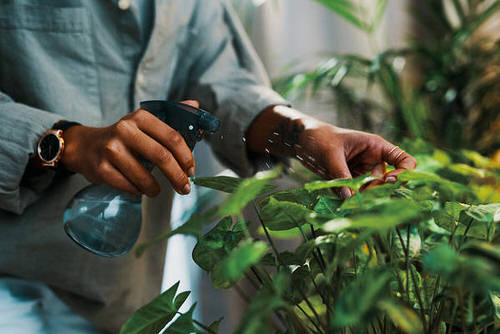
Make a solution of a liter of water with 1-2 tablespoons of 3 to 6% hydrogen peroxide, depending on the level of infection. Fill it in a spray bottle, and spray on the plants affected by the insects.
It works best on soft-bodied pests like aphids and spider mites. This non-toxic solution will work better than chemical-based pesticides.
Here are the best bug-repellant plants you can grow
10. Dechlorinates Tap Water
Tap water contains chlorine and other compounds that can harm the health of your plants. You can filter tap water with hydrogen peroxide as it has oxidizing properties, which makes it fit for use in the garden.
Use a teaspoon of hydrogen peroxide in a liter of water. You can also use this solution to grow plants in water.
11. Prevents Weed
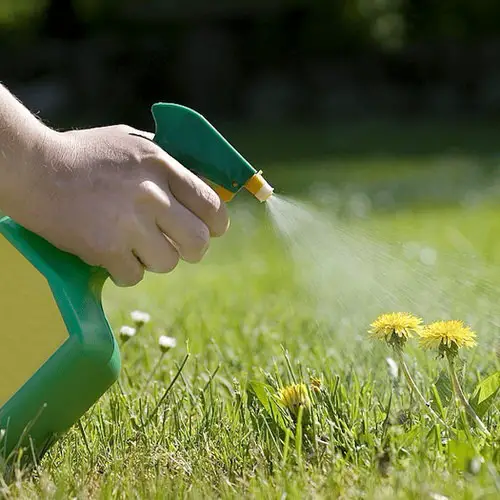
To prevent weeds in the garden, use a solution of hydrogen peroxide and water in a 50:50 ratio. Spray it on the affected area and repeat the process if needed. Make sure that you are not accidentally spraying it on other plants.
12. Cleans Garden Furniture
Hydrogen peroxide can be used to scrub away mud, dirt, and stubborn stains from the garden furniture. Using a brush, give a nice rub on the furniture and then wash it away with a strong jet of water.
13. Promotes Soil Aeration
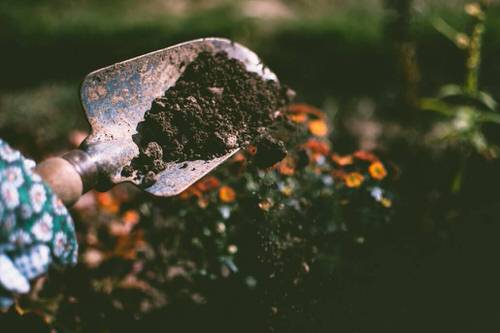
You can use hydrogen peroxide to improve poorly aerated and compact soils. Adding it into the soil significantly increases the biomass of the aerial portions of the plant. Add a teaspoon of hydrogen peroxide to a liter of water and pour this around the base of the plant.
14. Disinfects Growing Medium
Organic potting mixes can be affected by bacteria and fungi, which can be harmful to the growth of plants. Using hydrogen peroxide eliminates this problem. Simply sprinkle a little of it over the growing medium before planting.
15. Cleans Vegetables and Fruits After Harvest
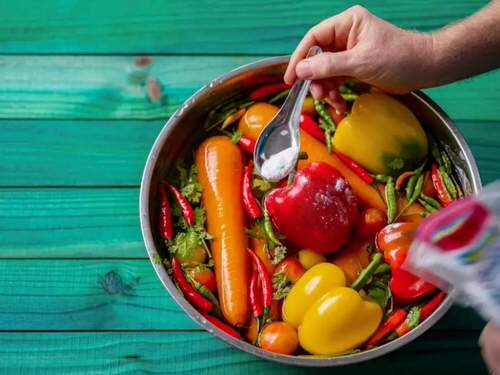
Once you have harvested vegetables and fruits, it will be a good idea to give them a nice wash with a solution of hydrogen peroxide and water (4 teaspoons in a liter of water). It will make them clean and disinfect, too.
16. Eliminates Mosquito Larvae
If you have a pond or a water feature in your garden, then adding hydrogen peroxide to the water will eliminate the chances of mosquito breeding. Sprinkle hydrogen peroxide into the water. You can also increase the quantity as per the results.
17. Treats Water
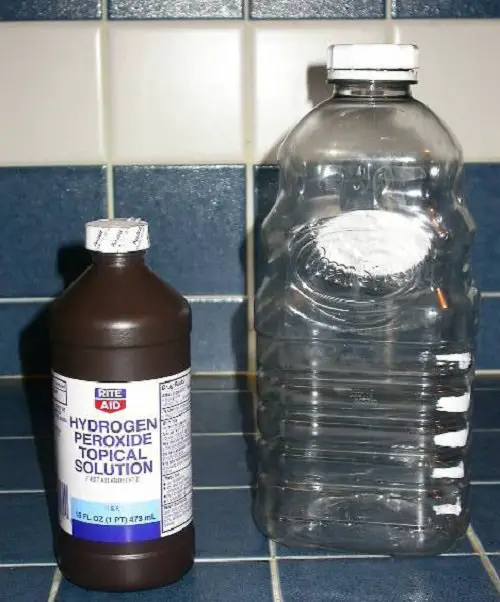
If you have a well or other water body in your backyard, then you can use hydrogen peroxide to clean its water. It eliminates the sulfur content and takes away bacteria, tannins, and foul odors from the water.
To do this, add half a teaspoon of hydrogen peroxide to a liter of water. Leave it overnight before consuming.


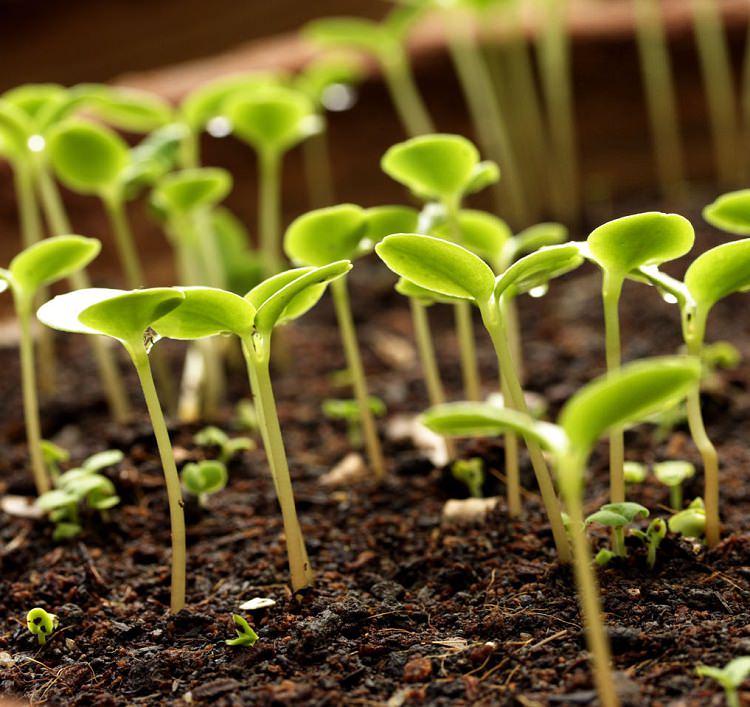
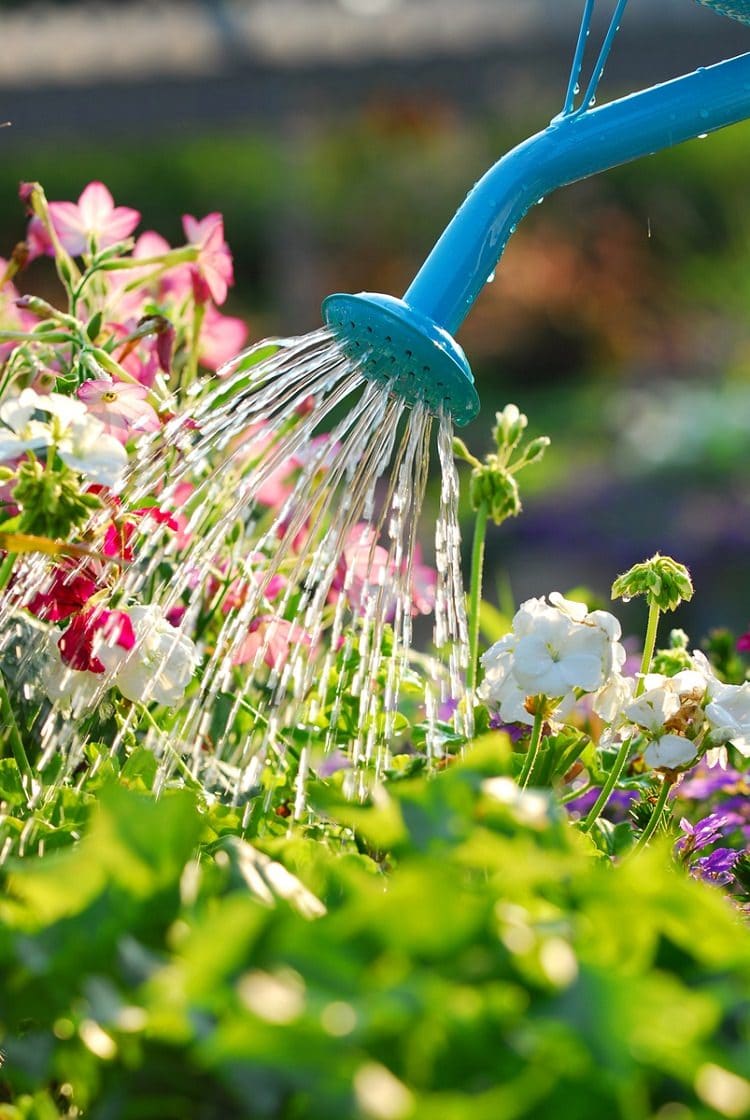
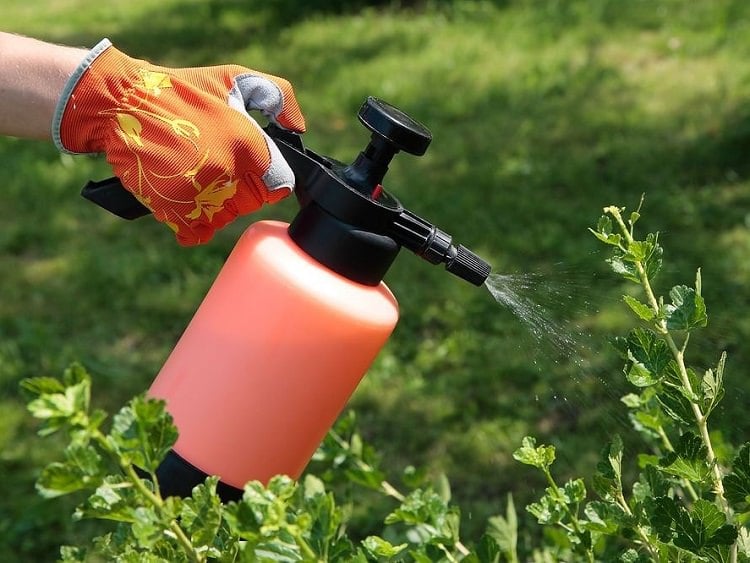

do y’all think this would kill army worms?
I don’t think it would but you could always try. Maybe, putting a worm in a pot with little soil, spray some in there and check back in 2 days. Spray both days.
Diatomaceous earth.
Interesting article, I’ll give it a try.
Could these tips be used for indoor plants as well
I sub to a couple of YouTube orchid channels. Both use H.P. often: whenever a cut needs to be made, for tiny snails and slugs that get in, for fungus, root rot, etc.
Stick with 3% and most plants will be OK. Not sure about African Violets or other very tender ones.
I put worms in my flower beds because here in Ms. the soil has a lot of clay the worms crawling around (I bought the at a fish bait stand) keep the soil from getting to packed and they leave good fertilizer.
look at “worm tower” on you tube.
I will try anything that will kill grubs…
Beer, they love it and drown!
The beer needs to be in a saucer so that the grubs will drown.
How much hydrogen peroxide should be added to 1 quart of water?
Read the links in the blue letters
Equal parts…1 quart
Same question as Meryl… You did not state the mix ratio on the first few uses… Thanks!
Could it be used in a compost tumbler? To kill the odor of dried and old compost?
Worms deodorise very well. Put them in there and the next day it should be fine.
I like worms in my compost. My whole garden is a compost heap of mulch. I have heavy black soil that compacts hard. Worms break it up after a while and it becomes sweet smelling and crumbly.
Kind regards
Sandra
It sounds like you have a wonderful gardening soil to work with! I only wish that I could get my soil up to par It has rocks and is so compacted and it’s graded on a sloop which I find it very difficult to make it useful for planting things especially a fruit tree. Any suggestions would be greatly appreciated!
Does it kill beneficial nematodes?
Will the mixture work on killing mold and mildew under kitchen sink and rotted wood? What do I use to kill a climbing vine weed outside of house that grows from underneath the closed in porch and can’t get to roots? Thanks Cindy
Try one gallon of vinegar 1 cup salt 2 tablespoos dish liquid. But don’t spray on anything you don’t want killed. Spray whe it’s not going to rain. Do it again in a couple of days. This works for me. With poison ivy.
Mix about 1 teaspoon of 3% Hydrogen peroxide with 1 gallon of water.
I put some in my water fountains to keep the mold/moss from growing and it’s not harmful to the wildlife.
3%? Is this foodgrade HP (not the stuff we buy in the drugstore)?
There is no such thing as foodgrade Hydrogen Peroxide. HP is toxic to animal life forms. I’m not even all that sure about plant life forms. By what means is the “extra” hydrogen ion being separated from the other ions in the molecule? What is the catalyst or the process that turns H3O into H2O and H+?
try diatomaceous earth (FOOD GRADE ONLY).
my answer was meant for the first question.
i put that in my dogs food..can it be put in soil 2?
What are you putting in your dogs food?? Hydrogen peroxide?? WHY!!
Excellent stuff !
Crawling bugs hate it! Cuts their legs ! Really !
Food grade PEROXIDE is sold in 35% ..you just add water to it until it reaches 3 % .It is used by the food industry extensively.
There is such a thing as food grade H2O2. My 95 year old parents drink it mixed with water or juice. Must be diluted of course. Google it.
H2O2 is just that unstable. It doesn’t want to exist and is trying to shed that extra O2.
Hi- There IS FOOD GRADE HYDROGEN PEROXIDE and it’s a MIRACLE WORKER. Most don’t know about it BECAUSE of how beneficial it is to our health. Only need drops. It can save lives.
Hydrogen peroxide is H2O2, not H3O
HP is toxic to Wildlife? Like birds drinking from a fountain that has been treated with it?
Would this kill mosquito larva in standing water?
would like to know as well… I have been wanting to make some containers to catch rainfall because we are always in a drought in south Texas. So far I have read articles of people using gold fish to eat the larva, some have used a fish tank bubbler to a movement on the water surface to prevent mosquitos from laying their eggs. if HP works on killing larva, I would think this is the easiest and cheapest route.
Gold fish super cheap also.
Hi-Try covering as much as you can if possible, a little bleach is used in livestock troughs, can also put things that float (ball, bath toy-to try to keep surface moving-we use them in winter to help prevent ice in horses trough when no electric avail.). or maybe screen lid, lemongrass plant or wind chime or spinner (last 2 they’re just my guesses).
I made screen covers for 2 waterbarrels to keep the mosquitoes out.
Try fish in the water. They eat the larvae. My pond is so free of mosquitoes thanks to them.
the pond pump helps to oxygenate the water. It is clear, The fish are healthy. I am growing plants in there too. Beautiful waterlilies especially.
I use 3% hydrogen peroxide to kill the pests present in the roots of orchids before repotting them .
Very cool. I love learning something new. Thanks.
Mosquito donuts are for sale. For standing water they last a month or more. I use them in our waterfall pond.
Or add a few table spoons of cooking oil, To the standing water. The oil spreads out and floats on top of the water and suffocates the mosquitoes . Won’t harm plants or animals…amd super cheap.
I live in central Florida and I have used Hydrogen peroxide (bought in grocery store) for over a year in my bubbling water feature and it does keep the water clean, no nasty green stuff. I have to add 8 oz to the pot holding the water (4-5 gallons) once a month as I also have to add water that evaporates.
Very useful information thanks
This may be too much info, but judging from the questions; some may benefit
1. there are 2 commercially available strengths of “peroxide”: 3% and 20%.
3% is the one referred to in ALL of the
references to in gardening. For example, it was stated using 1 tsp per gallon of water, but there are many variables to this: how long has the mixture been sitting since it was mixed? Has the mixture been sitting in the shade of sun? Hydrogen Peroxide is a relatively unstable compound I.e., it has an extra oxygen atom that it does not want: H2O2 very quickly breaks down into water (H2O) plus one atom of oxygen (O). Ever notice when cleaning a wound using peroxide (always the 3%!) that bubbles are released…those are the extra oxygen atoms forming the bubbles (which kill bacteria & help to clean the wound). That quick formation of bubbles shows just how “unstable” H2O2 is, to be of benefit, a mixture should be used quickly.
There are many beneficial uses of peroxide (ask your pharmacist); HOWEVER; unless you intend to bleach your hair,NEVER have the 20% strength in your home…it can cause burns & can be deadly if ingested.
GOOD GARDENING !
I’ve had inclinations to use it but was afraid it would burn the leaves…My ivy has been sad after she got too much rain on her pot. You think she can take it?
Yes, HP is a very practical product to keep around the house for cleaning–for soaking seeds before planting thereby getting a better germination and also ridding molds that commonly occur on seeds right after planting. Hydrogen peroxide is excellent for certain infections including staph–but never use peroxide on a gap wound or a deep puncture injury. In these cases the peroxide will disinfect, but also it will keep the wound from closing back up properly. Farmers often have made this mistake using it on minor wounds of animals but then using it on horses or cows that have deep punctures–in these cases it may even keep the injury from healing because the flesh will not grow back properly. It has been used successfully for cancer by patients and even some MD’s. The atom of oxygen that separates from the molecule when taken internally does the same thing that white blood cells do when a person has an infection—white blood cells produce peroxide to heal.
Will it help get rid of mealy bugs on my Hoya and white flies on my Gerber ?
HP can be used to help rid white flies and also mold. It often leaves brown spots on leaves and may wilt leaves slightly–these symptoms dissipate quickly and the plant or shrub usually receives quite a benefit.
Always use it at the proper dilution rate. I am not recommending the use of it when I talk about the various ways it has been used-simply disclosing information.
Many of this works most off the problems are solved.I did used them ,till now no complains .most
I use it in my Koi pond to help keep the gravel bottom clean, it doesn’t harm the fish or pond plants used correctly.
DE can kill bees be wary
Will a mixture of peroxide and water help powdery mildew on various plants, like peonies or tall phlox?
Diatomaceous Earth (I use food grade only)kills ALL Insects, including beneficial ones- dont use in soil you want earthworms to live in, and not around FLOWERS- bees will get killed too ! I sprinkle it very carefully on lower leaves of my food plants not on the flowering parts – love the Hydrogen Peroxide info though ! Will TRY !
Would the 3% be helpful for “Fish Tanks” to control issues mentioned regardind ponds?
JMAS, Homestead, FL.
Hi, different subject than gardens. Could HP be used (larger quantities) in a small 2 person hot tub, rather than the strong chemicals?
I use hp that is used for swimming pools and spas 50% 10 mils to 160 mils water 100 mils will make 1.6 liters at approx 3% works well I get mine from good splash Newcastle NSW never had any problem with it
I have used the 3% for years. I just pour some like a fourth of a cup in a gallon of water and go watering plants. I have revived plants that looked almost dead. My rose bush started blooming like crazy. I have heard you can put it on your lawn. I didn’t know about it getting rid of white flies so I will have to try it on my lemon trees. It should not hurt you to drink a little because I have had a dentist tell me to rinse with it. It really works.
Have you tried using a full bottle in 1L bottle thats about close half/half
I used 1 bottle (3%) (400ish ml) in my hydroponics jar, for my herb (oregano) 4 parts to 1 part water. Its been 24hrs, no signs of any ill effects on the leaves, stems, or roots.
Reason I did that is because it showed signs of root rot.
at the end of the day, after all the O2 is released, you are just left with H2O (aka water) .. I’m curious if i can drink it :D … the 97% of the mixture IS distilled water.. probably not a good idea since its acidic.
Does anyone know the PH reading on HP?
Four parts ho to one water?! Don’t you mean the other way around?!
Powdery mildew can be counteracted with a combination of baking soda and canola oil. Of if desired the canola oil can be used alone. 1 tbs of baking soda pr gallon of water with 2.5 tbs of canola oil. The oil suffocates the mildew. Many types of oils are used for row crops as well.
Does the mixture of 3% HP with water can kill or repellent termite too?
My jade plant got white flies. I got lucky having found a tiny ant queen and let her loose in jade plot. She had mated yea! So her colony grew and they ate or drove out the fly’s. Occasional drop of honey keeps them out of your cabinets. At home entomologist. Lol.
I am 84 years of age I can guarantee peroxide is good for almost everything have been using Peroxide for health reasons since I was a small child my mother always used it for medication on cuts , cold sores etc. So naturally I followed her methods it is great forr infected toenails ( your pour some peroxide into the cap and then pour it onto the infected nail and try and get some at the top of the nail so it can seep down the back when it fizzes and turns white you know that it is working. if it isnt working the Peroxide is old. I am sure it would help ingrown toenails as well. I use it for many ailments – a sore throat as a gargle I had a very sore leg just above the ankle had it for months it was hard and very painful to touch -each night i would pour peroxide into the palm of my hand and rub in into the skin with in two weeks the soreness left and hasn’t returned and that was months ago now. I cud go one but you can just try and see how you go it worked for me.
good luck with your vegetables I am sure it will work.
I use Diatomaceous in my chicken shed; it kills the mites and also can rub it on your ankles for chiggers. I keep extra on hand and use it on my garden plants.
Can this be use for Nematodes?